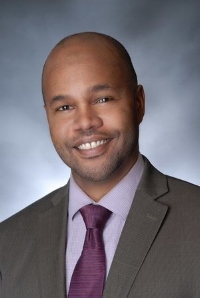
Health care is consistently polling as one of the top tier issues on the minds of voters heading into the 2018 midterm elections and is likely to be a policy priority for lawmakers during the first 100 days of the next Congress. Leaders of both parties have signaled that they intend to work on addressing concerns over quality of care, barriers to access, out-of-pocket costs and other pressing matters, although no timelines have yet been publicly stated.
With a high rate of turnover expected, at least in the House–whether the result of a “wave” election, or just an injection of new blood on both sides of the aisle–an infusion of lawmakers with health-related backgrounds could presumably affect the way lawmakers approach the debates on the Affordable Care Act and other important health-related legislation.
There’s no doubt about it: Getting your priorities in front of freshmen members as early as possible is always a smart move. And having an understanding of their professional backgrounds can help you connect with those members who may be sympathetic to your cause.
A major overhaul of seats in a new Congress is especially frustrating to advocates– losing your issue champions to retirement or ousting can leave your priorities voiceless, and changes in the majority could thrust other policy and programmatic priorities ahead of your own. In those cases, understanding the professional backgrounds of the incoming decision-makers could be especially important for crafting legislation vital to patients, providers, researchers, and other communities you represent.
With that in mind, I’ve carefully scoured the field of incumbents and front-runner challengers in this year’s midterm elections. The results: We could see a boom of health-related professionals entering Congress next January.
Click here for a spreadsheet of the relevant House and Senate candidates and their health-related professional experience (includes several tabs).
Of the 870 front-runner candidates for seats in the House of Representatives, nine percent (80) have health-related professional experience, with physicians making up the bulk of the health professionals (27), followed in a descending order by candidates with backgrounds in nursing (7), higher education (6), dentistry(5), executive health (5), health care advocacy (5), mental health/ behavioral health (4), obstetrician-gynecology (3), veterinary medicine (3), and research (1). Additionally, there are six candidates with various backgrounds in social services and two health care lawyers.
Thirty-five House candidates are incumbents with health-related experience (15 Democrats and 20 Republicans), while 45 challengers have experience (27 Dems and 18 Republicans).
Out of the 33 Senate races, eight candidates have health-related professional experience; three are incumbents (two Democrats and one Republican) while five challengers look to capture seats (three Democrats and two Republicans).
The total number of health professionals in Congress has remained relatively stagnant for most health occupations over the past decade, though some occupations have decreased ever so slightly over the last three Congresses. According to the Congressional Research Service-
- the number of physicians serving in Congress has hovered around 18 to 20, but dropped to 15 in the current session (including two ob-gyns);
- those with nursing backgrounds have oscillated between 3 and 6 seats;
- scientists have consistently averaged three seats;
- mental health experts generally occupy four seats;
- the same two or three dentists and veterinarians have held onto their seats for the past 10 years; and
- social workers remain one of the highest represented health occupations, averaging nine seats per Congress.
This year, the departure of three retiring Members of Congress will open up some leadership positions on key health-related committees, including Senate Finance, House Energy and Commerce Health Subcommittee, and House Ways and Means Health Subcommittee, which would have a trickle-down effect, opening rank-and-file committee seats that could be filled by freshman members.
Senate Finance Committee Chairman Senator Orrin Hatch will retire when the new Congress is sworn in this January, leaving open the top Republican position on the Senate panel that oversees Medicare, Medicaid, and tax and trade policies. On the House side, Energy and Commerce Health Subcommittee ranking member Gene Green is also retiring, leaving open the top Democrat seat on the panel that oversees private and public health insurance (e.g. the Affordable Care Act, Medicare, Medicaid, CHIP), biomedical research and development, mental health, and health information technology. On the House Ways and Means Health Subcommittee, ranking member Sander Levin will not seek reelection, opening up the top Democrat seat on the health panel that covers health insurance premiums and health care costs, Medicare prescription drugs, and programs providing payments for health delivery systems or health research.
Additionally, there will likely be some movement amongst the rank-and-file, with members switching committees or losing elections.
Regardless of which party comes out on top, this election could usher in a heap of new health professional experience that would theoretically lend additional expertise to policy making.
Watch this space.